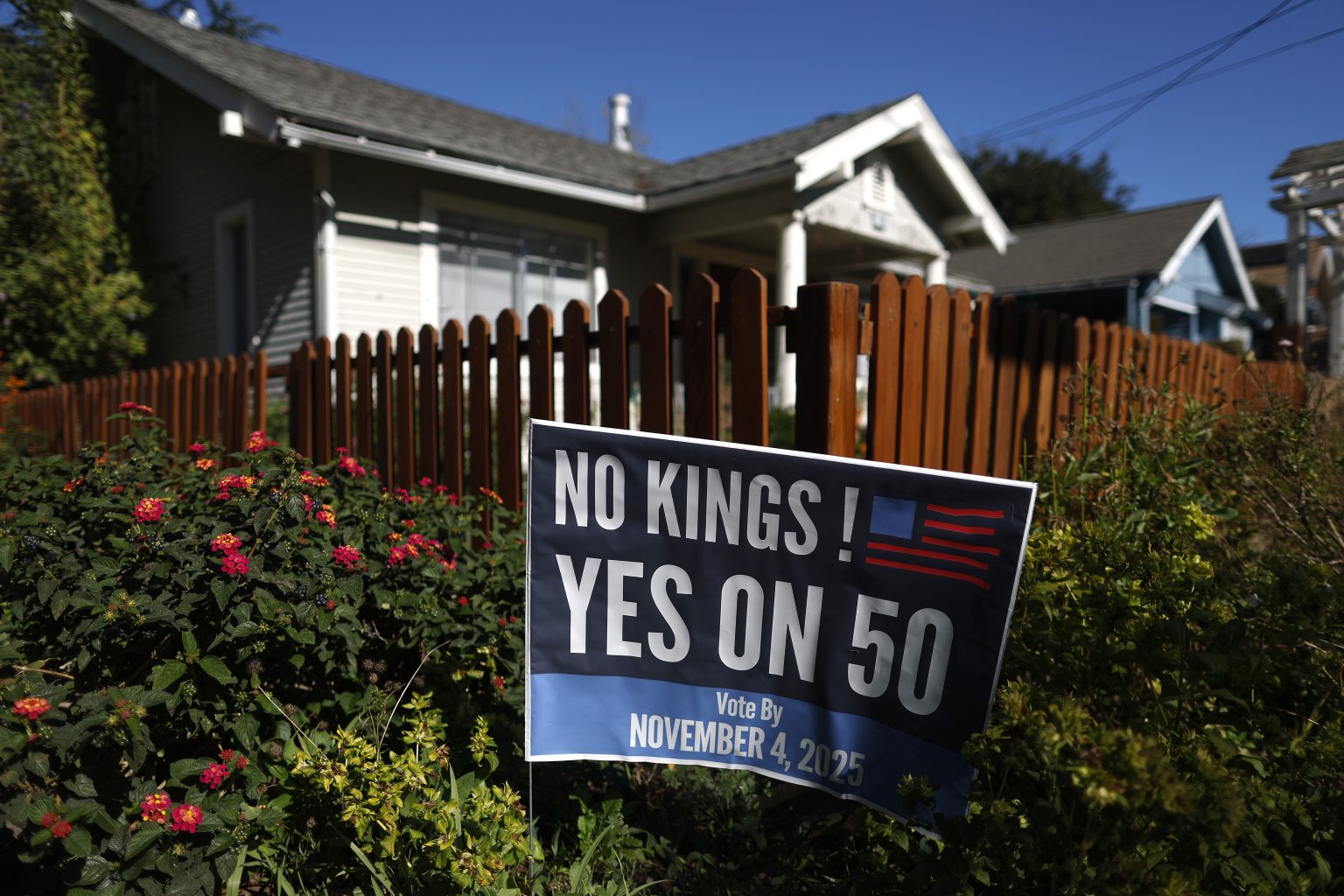Listen to the article
In a quiet corner of San Anselmo, California, the political battle over redistricting has made its way onto front lawns. Residents displaying “Yes on 50” signs have become visible symbols of one of the most consequential ballot measures facing California voters this election cycle.
California’s Proposition 50, which voters are deciding on today, would discard the state’s current congressional district map in favor of new boundaries drawn by the Democratic-controlled state legislature. The proposed maps would remain in effect from 2026 through 2030, potentially reshaping the state’s political landscape for years to come.
The measure represents a significant departure from California’s relatively recent history of using an independent commission to draw district lines. That commission was established by voters in 2010 to remove partisan influence from the redistricting process.
Supporters of Proposition 50 frame it as a necessary response to aggressive redistricting efforts in Republican-controlled states across the country. They argue that Democratic-leaning California needs to use the same tactical approach to maintain balance in the U.S. House of Representatives during the 2026 midterm elections.
“This is about ensuring fair representation at the national level,” said Maria Gonzalez, a political science professor at UC Berkeley. “Proposition 50 supporters believe California Democrats must play by the same rules as Republicans in states like Texas and Florida if they want to remain competitive.”
Critics, however, view the proposition as an abandonment of California’s commitment to nonpartisan redistricting. They warn that allowing legislators to draw their own districts could lead to increased gerrymandering and reduced electoral competition.
“Independent redistricting was a reform Californians embraced to improve our democracy,” said James Chen, director of the California Fair Maps Coalition. “Proposition 50 would take us backward to an era when politicians chose their voters, not the other way around.”
The battle over Proposition 50 reflects broader national tensions around redistricting and electoral fairness. Following the 2020 census, several Republican-controlled state legislatures redrew congressional maps that significantly favored their party, prompting legal challenges in states including North Carolina, Ohio, and Alabama.
Political analysts suggest Proposition 50 could potentially help Democrats gain or protect several congressional seats in California, offsetting Republican advantages in other states. With control of the House potentially hanging in the balance in 2026, even small changes to California’s 52-member congressional delegation could have national implications.
“The stakes couldn’t be higher,” explained Dr. Sarah Williams, a redistricting expert at Stanford University. “California’s approach to drawing its congressional maps could determine which party controls Congress after the next midterm election.”
Public opinion on the measure remains divided. A recent poll by the Public Policy Institute of California found 48% of likely voters supporting Proposition 50, with 44% opposed and 8% undecided. The measure has created unusual political alliances, with some progressive groups joining conservatives in opposition, arguing that partisan redistricting undermines democratic principles regardless of which party benefits.
Campaign spending has been substantial, with supporters and opponents collectively pouring over $45 million into advertisements and outreach efforts. Major donors to the “Yes” campaign include national Democratic organizations and labor unions, while the opposition has received significant funding from business groups and good-government advocates.
As San Anselmo residents make their way to polling places today, their decisions on Proposition 50 will help determine not just how California draws its political boundaries, but potentially the future of redistricting reform nationwide.
The outcome could signal whether voters prioritize partisan advantage in an increasingly polarized political environment or remain committed to independent redistricting as a democratic ideal—a choice that may reverberate through statehouses across the country considering similar measures.
Results for Proposition 50 are expected to be announced later tonight, though close margins could delay a final determination for several days as mail-in ballots continue to be counted.
Fact Checker
Verify the accuracy of this article using The Disinformation Commission analysis and real-time sources.




10 Comments
Given the high stakes involved, I expect this battle over redistricting in California to get even more intense as we get closer to the election. It will be interesting to see how it plays out.
The potential for redistricting to shape the political landscape for years to come is concerning. I’ll be following this issue closely to see how it unfolds and what the implications might be.
Redistricting can have major impacts on the political balance of power. I hope Californians are able to have a thoughtful, fact-based discussion about the best path forward that serves the interests of all residents.
Agreed. Maintaining fair and representative districts should be the top priority, not partisan gamesmanship.
The use of an independent commission to draw district lines seems like a good approach to remove partisan influence. I wonder how effective that has been in practice and what the arguments are for moving away from that model.
Definitely a complex issue with valid arguments on both sides. It will be important for voters to carefully weigh the pros and cons.
Redistricting is a complex and often contentious process. I hope Californians are able to come together and find a solution that upholds democratic principles and serves the interests of all residents.
Absolutely. Maintaining fair and representative districts should be the top priority, not narrow partisan interests.
Interesting to see this divisive battle over redistricting play out in California. I’m curious to learn more about the arguments on both sides and how this could impact the political landscape long-term.
Redistricting is always a contentious issue as it can sway electoral outcomes. I’ll be watching this closely to see how it unfolds.